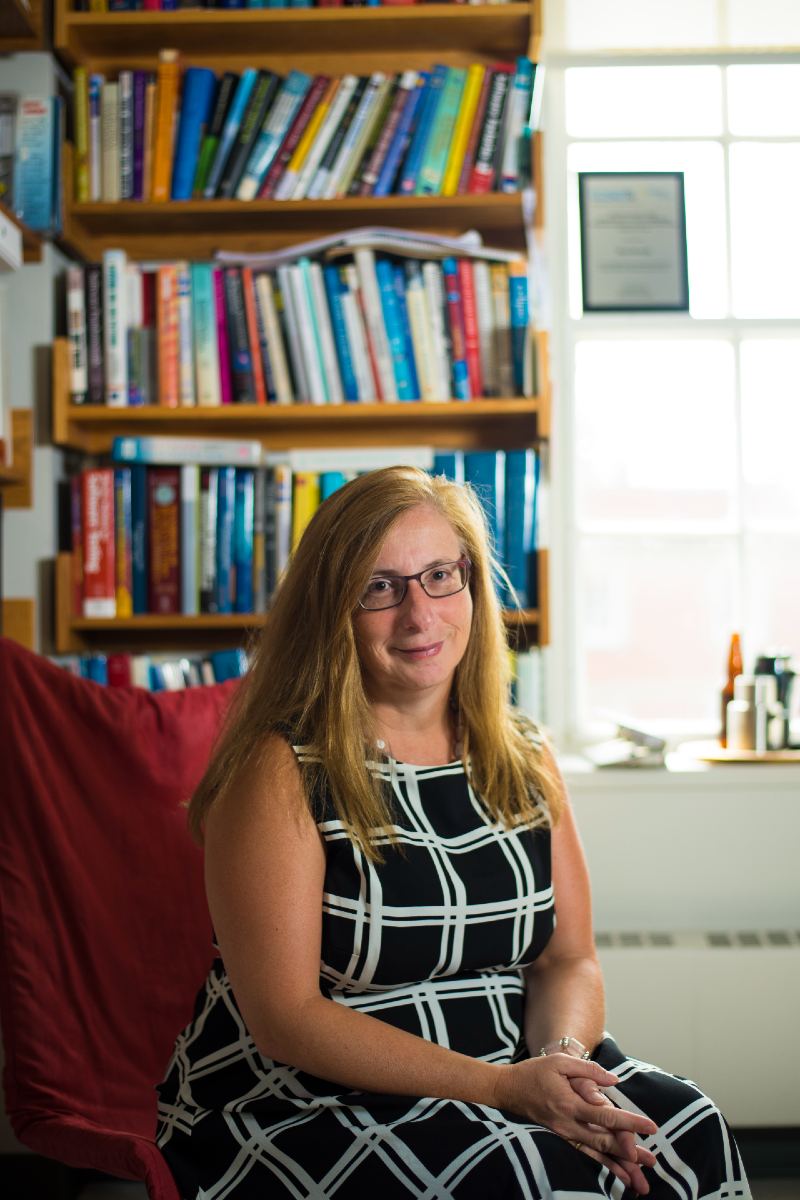Have you met Eleni Stroulia?
Katie Willis - 1 October 2021
For Eleni Stroulia, variety and complementary learning opportunities are what keep life interesting at the University of Alberta. Her research mixes theoretical and applied science, and her fourth-year undergraduate teaching incorporates work-integrated and experiential learning. In addition to her duties as acting vice dean in the U of A’s Faculty of Science, Stroulia is also a professor in the Department of Computing Science and the director of AI4Society, one of the University of Alberta’s signature areas.
Meet Eleni Stroulia.
Tell us about the focus of your research program (in three sentences or less).
My research follows two arcs. On one hand, I am working on methods and tools to support the evolutionary development of software systems. On the other hand, I develop software to solve real-world problems, such as, for example, educational apps and systems for health interventions. The two activities support and inform each other, and the mix of theoretical and applied work keeps life interesting.
What is your favourite course to teach?
Hands down CMPUT401: Software Process and Product Management! I get to guide student teams through the complete software-engineering process, from talking with a client about their—typically vague—idea, all the way to actually delivering a prototype system that works. Each project is unique and the students learn a lot through the process, and so do I. Being part of their journey from concept to system is nothing less than exhilarating.
What is the biggest strength/opportunity that you see for the faculty in the next year?
We have gone through some difficult times and I hope that, in the future, we will look back and recognize that these were growing pains. Today, I am excited with the University of Alberta’s commitment to interdisciplinarity. The most interesting problems can only be addressed by teams of excellent researchers and science is bound to be at the core of any team working on a problem worth solving, from explaining what it means to be human, to understanding how the universe works, to developing "smart solutions" to address climate change.
What is your first memory at the U of A?
I arrived with my husband just before Christmas in 1996 while I was very pregnant with our first child. I had never seen so much snow in my life, I had never been so cold, and I found that my walking abilities were not good enough for the slippery sidewalks. I wish we had arrived in the spring, but, I guess, with our winter arrival we collected a few fun "new Canadian" stories.
What’s something that people might be surprised to learn about you?
Throughout high school, my teachers expected me to study classical Greek philology. I very much enjoyed history, the ancient Greek language, and the classical texts. My choice of computing science as a field of study was motivated mostly by the fact that it was so new and exciting—I truly had no idea what it was going to be like. Every day since then, I am happy that I followed my intuition.
Where is your favourite place on campus?
The Rutherford House. My first visit was with my daughter when she was in elementary school and we baked cookies there while learning about Alberta history. After that first visit, I became a regular at the restaurant and the coffee shop, enjoying many lunches and afternoon teas in front of the big windows. The view of the sparkling snow through these windows in the winter is just magical.
If you were enrolling in one course, program or degree right now, what would it be?
I assume that computing is not an option, and in this case, I would study law. Our society is challenged by many inequalities, and I would like to try to help address some. Thinking back to my first love for language, I know I would enjoy working on wordsmithing an argument and the development of a well-crafted argument itself seems similar to designing a system to address a complex problem.
